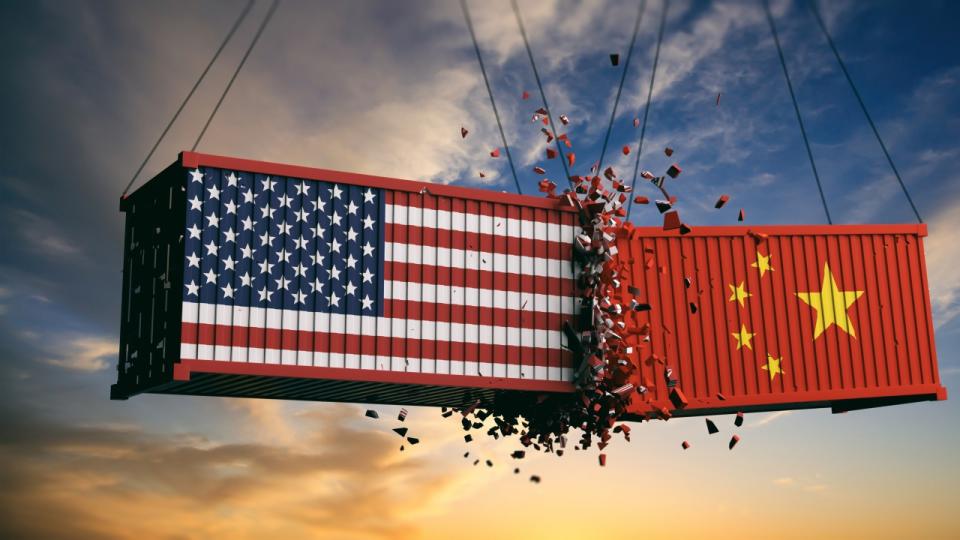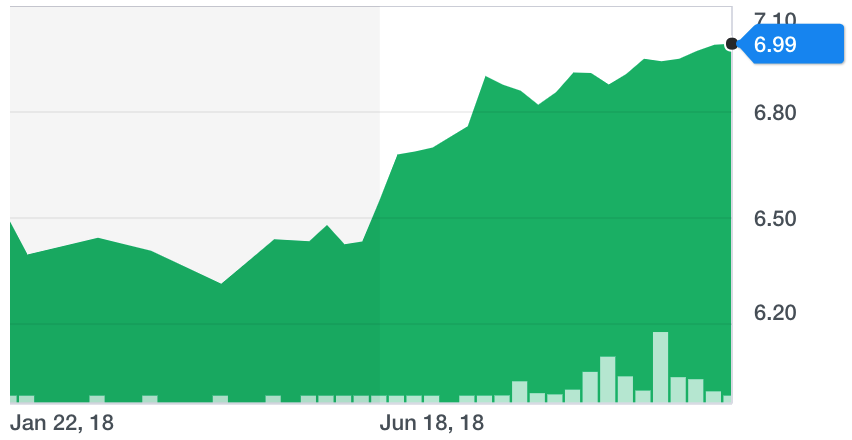Why you won’t feel much pain from Trump’s tariffs this holiday season
President Donald Trump’s trade war with China has been going on for months and is likely to escalate. But how soon will it hit your wallet?
Even though Trump’s tariffs on part of Chinese goods have been in place for months, the impact on consumers during the holiday season will likely be manageable, mainly due to early orders and the devaluation of China’s currency yuan.
For big importers and exporters, they usually make holiday orders in the first half of the year and have them shipped in the summer. Big players already received products to stock their shelves for the holidays. The U.S. trade deficit with China rose to $38.6 billion for August, its highest level, as retailers rushed to import goods before tariffs hit.

Costco said it’s been accelerating shipments before tariffs went into effect. Alasdair James, president and CEO of Pier 1 Imports, said the Fort Worth, Texas-based retailer won’t see a material impact from tariffs this year.
“And part of that reason was that our sourcing team did a good job of getting most of the products that are going to be affected by the 10% tariff into our business prior to the tariffs deadline occurring,” James said on the earnings call in October.
Big dip in value of China’s currency

Since the beginning of this year, the yuan, China’s currency, has dropped by approximately 9%, hitting the weakest level against the U.S. dollar in a decade on Tuesday. The decline is advantageous to American exporters because it gives them purchasing power when dealing with Chinese suppliers.
“When you take the currency adjustment into consideration, it gives us a lot more leverage to go back to the suppliers and say, we’re effectively paying you more for the same goods than we were back in April. So we’re able to actually ask some suppliers for potential discounts,” Nick Mauro, senior manager of logistics at Ichor Systems, told Yahoo Finance.
Additionally, the various parties involved in the purchasing of goods from China will also help to absorb increased costs. “Even when the 25% tariffs go into effect, the impact consumers feel is not gonna be 25% for sure,” John Zhang, professor of marketing at the Wharton School, told Yahoo Finance. Suppliers usually opt to pass only a fraction of incremental costs to consumers. “It’s in their interest to absorb part of the price increase. Because you don’t want to lose too much volume. In the marketplace where the demand is elastic, you’ll see much less demand because of the price increase.”
While Zhang said the impact on this holiday season is “very minimal,” the escalation of Trump’s trade war would require retailers to make long-term strategy shifts, including looking for alternative suppliers and moving supply chains, a process that takes a long time and comes with more uncertainties.
“Our DNA is we want to be the last to raise the price and we want to work with any supplier to figure out how to not do that. But ultimately, you can’t eat all these,” Richard Galanti, CFO of Costo, said on the company’s earnings call in October. He acknowledged that demand can shift in response to price changes.
Retailers across numerous sectors expect consumers to see the impact of U.S. tariffs on imports by early 2019, according to the Fed Beige Book published last week.
Krystal Hu covers technology and trade for Yahoo Finance. Follow her on Twitter.
Read more:
Americans who say their finances haven’t improved mostly blame Trump
Foxconn executive: Make products in the U.S. and sell them to China
Amazon bought Whole Foods a year ago. Here’s what has changed

 Yahoo Finance
Yahoo Finance 
